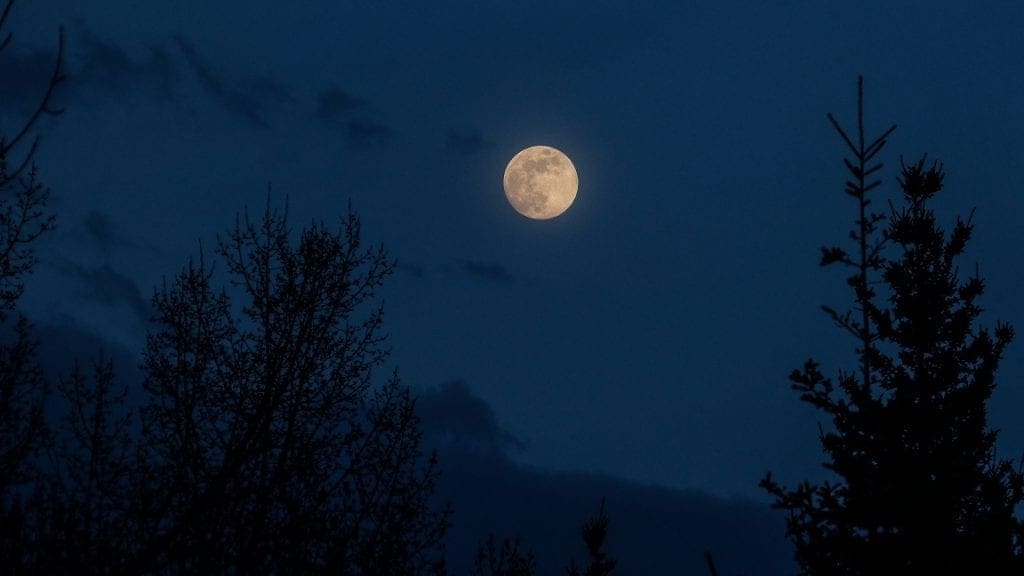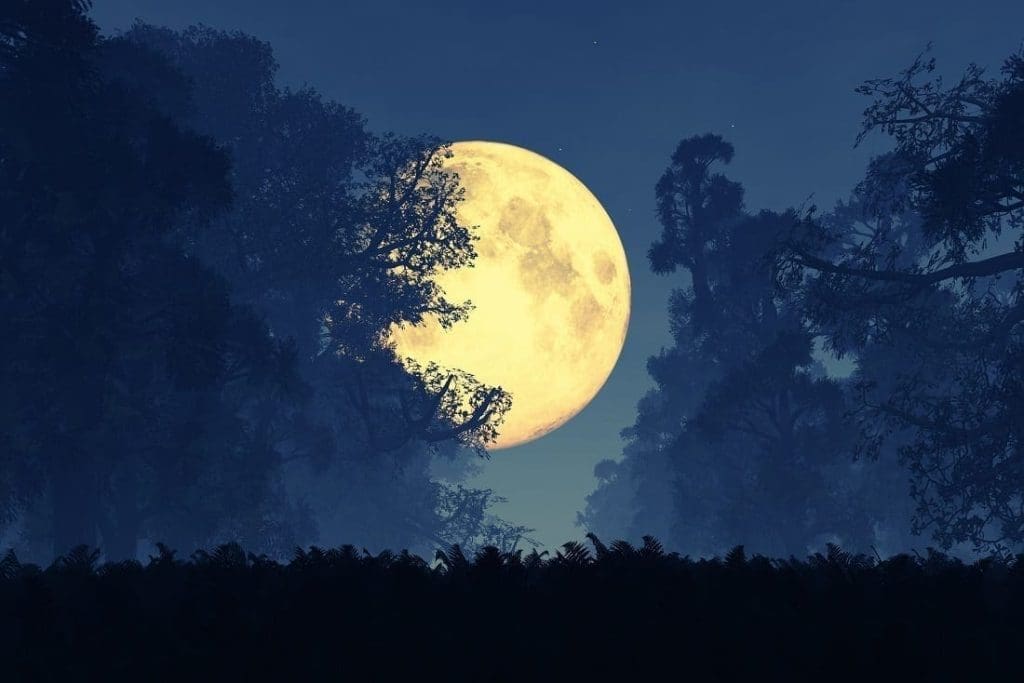The Moon holds an enigmatic place in human history. From ancient Mayan astronomers to modern biodynamic winemakers, a full Moon is more than just a symbol—it’s a call to action. For thousands of years, societies have believed in some correlation between the Moon’s cycle and living beings on Earth. We’ve come a long way from human sacrifice and Mesoamerican pyramids, but millions of people still accept the antiquated theory of the Lunar effect. Which begs the question: can a full Moon change your mood?
Last month, there was a particular night I was having some trouble sleeping. I usually sleep like a rock. The night in question, though, had me waking up every hour. The next day, my colleague brought to my attention that not only was there a full Moon, but there was also a subtle lunar eclipse. Being the skeptic that I am, I completed my workday and thought nothing else of it.
But as we skeptics often do, I began digging. First, into my personal history.
Throughout my childhood, many of the women in my superstition-obsessed Italian family have often treated each full Moon as some sort of unspeakable taboo event. “Watch out for the crazies tonight,” they often said. I didn’t understand it. Where did this idea come from? Could a full Moon influence the human mind to that extent? And if so, could it drive someone mad?
My family didn’t need much affirmation that the full Moon curse was true. For them, the neighbor’s cat knocking over a trash can was evidence enough. I never paid much attention to it. But my sudden lack of sleep (and inexplicable love of horoscopes) led me to investigate a bit further. I wanted to know if in fact there was any real scientific evidence to prove (or puncture) this theory.

Can a Full Moon Change Your Mood or Drive You Mad?
There’s insurmountable research suggesting that the Moon affects being such as sea life, but not so much in humans. A 2013 Current Biology study provided evidence on how the lunar cycle influences sleep in humans inside a sleep lab. Researchers monitored brain patterns, eye moment and even hormone secretion of 33 volunteers who were not given any information on the current time of day.
Remarkably, not only did deep sleep drop by 30 percent around a full Moon, but participants took longer to fall asleep and slept for 20 minutes less a night. They also produced less melatonin. Some of the researchers believe there may be some sort of moon clock in us that affects our hormones.
The study was spearheaded by Professor Christian Cajochen of the Centre for Chronobiology at the University of Basel in Switzerland. Cajochen’s preliminary findings concluded that the lunar effect appeared to influence human sleep, to what degree, though, remains unclear. One interesting fact, however, showed that the Moon played a role even when the participants could not see it or were not aware of its current phase.
Professor Cajochen’s study was certainly eye-opening, and possibly the answer to my one-night sleep deprivation. Still, I wasn’t convinced of anything beyond that. 33 strangers halfway across the world, seven years ago, weren’t going to determine if a full Moon was changing my mood. I had to know where this whole idea came from.
Full Moon Philosophies In History
As it turns out, in around 50 A.D., Roman philosopher and naturalist, Gais Plinius Secundus (Pliny the Elder), suggested that a full Moon led to more dew on leaves. This, in turn, he allegedly said, led to increased moisture in the human brain and therefore, potential madness. A quick Google search, though, will tell you that Pliny was also a Roman Army commander. So in truth, who knew what his agenda was for drawing this uncanny conclusion. Certainly thought-provoking.

Pliny’s theory lacks scientific evidence, of course. The Moon, however, does affect the tides of our planet’s oceans. Water makes up 60 percent of the human body. Either way, humans have carried this superstition over the centuries.
Other notable individuals throughout history have drawn similar conclusions. In the 1700s, British judge Sir William Blackstone asserted, “A lunatic, or non compos mentis, is properly one who hath lucid intervals, sometimes enjoying his senses and sometimes not and that frequently depending upon the changes of the Moon.”
With such prominent societal figures echoing this sentiment throughout history, it’s easy to see why all manners of fiction sprung from the idea of a full Moon—including ties to mythological creatures such as werewolves (perhaps a subtle ideology that a full Moon “brings out the beast in us”). After all, the word lunatic does come from the Latin moniker: luna (meaning moon).
Is it All Just a Myth?
Further investigation led me to a 1992 review of around 20 different studies. The review examined the relationship between individuals committing suicide (or threatening to do so) with the synodic lunar cycle. The study’s abstract concludes that there was in fact no relation connecting the actual lunar phase and “the measures of suicide.”

Alas, perhaps a full Moon can’t change your mood. But if not, why do so many precincts report an uptick in violent crimes during this Lunar phase? And why has this full Moon philosophy passed through the ages and into my own family here in the 21st century? The Mayans convinced an entire society that of the moon played a role in sacrificing their own people, but the lack of scientific evidence leaves me on the fence.
Patterns of the Human Brain
In Michael Shermer’s 1999 book “How We Believe” the American science writer argues that the human brain is something of a “belief engine.” In other words, we run on pattern recognition, drawing conclusions and creating meaning out of patterns we “think” see in nature. In a 2008 Scientific American article, he writes:
“Sometimes A really is connected to B; sometimes it is not. When it is, we have learned something valuable about the environment from which we can make predictions that aid in survival and reproduction. We are the ancestors of those most successful at finding patterns. This process is called association learning, and it is fundamental to all animal behavior, from the humble worm C. elegans to H. sapiens.
Unfortunately, we did not evolve a Baloney Detection Network in the brain to distinguish between true and false patterns. We have no error-detection governor to modulate the pattern-recognition engine. (Thus the need for science with its self-correcting mechanisms of replication and peer review.)”
So can a full Moon change your mood? After some light digging into Shermer’s logic, it’s hard not to lean on the side of the non-believer. Is the human brain predisposed to seeing patterns that often draw meaningless conclusions? Or is the Lunar effect really that powerful? One thing is for sure, more research needs to be done before we can truly conclude anything substantial.
The next full Moon starts tomorrow on September 2. Set your clocks and see for yourself. I’ll leave you with this Fraser Cain tidbit:
Michael is the Editor-in-Chief of New Jersey Digest and Creative Director at X Factor Media. A Bergen County native, he discovered his passion for storytelling while studying at Montclair State University. In addition to his work in journalism and media, Michael is an avid fiction writer. Outside the office, he enjoys kayaking, a bold glass of Nebbiolo, and the fine art of over-editing.
- Michael Scivolihttps://thedigestonline.com/author/mscivoli/
- Michael Scivolihttps://thedigestonline.com/author/mscivoli/
- Michael Scivolihttps://thedigestonline.com/author/mscivoli/
- Michael Scivolihttps://thedigestonline.com/author/mscivoli/




